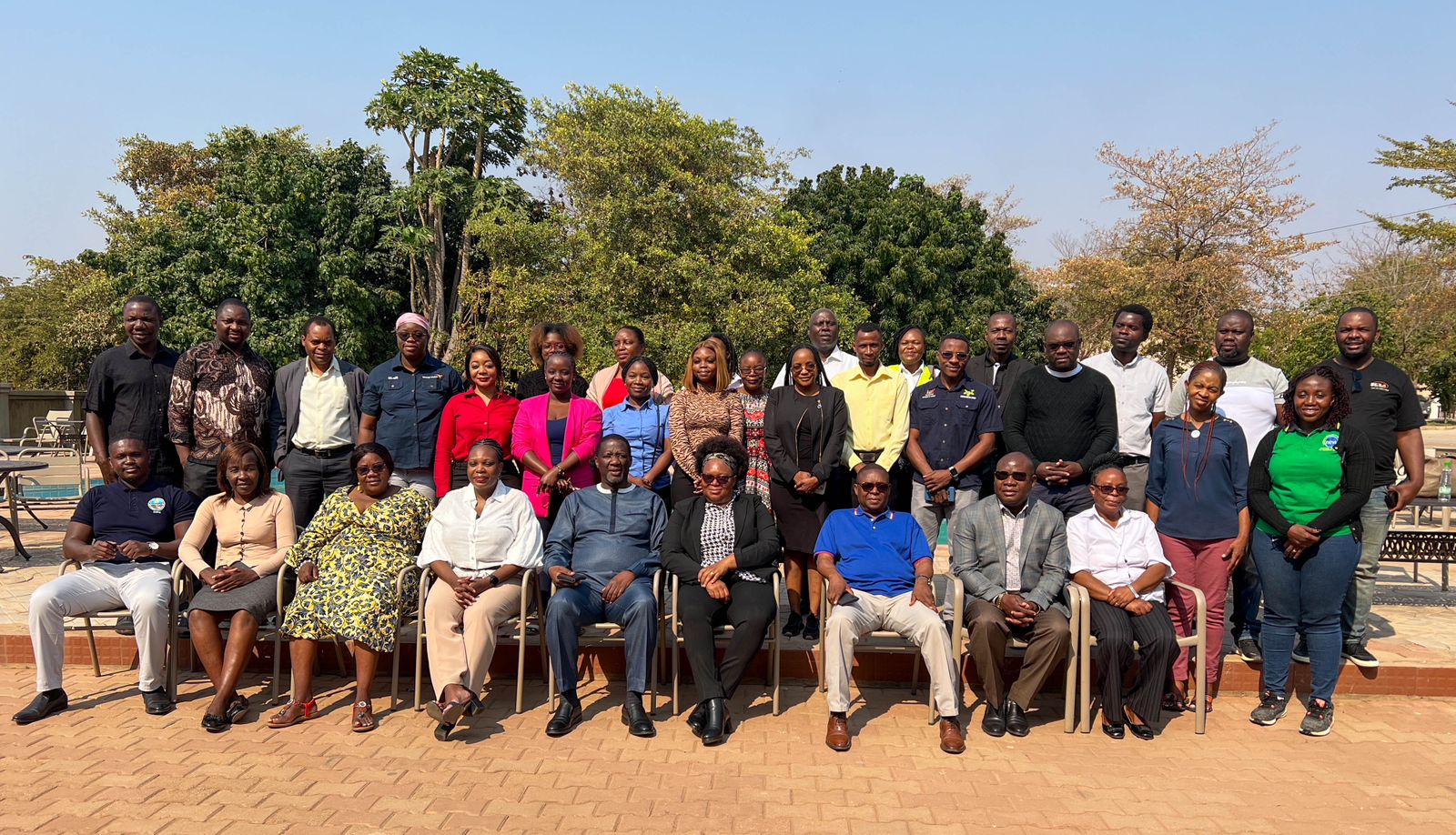Driving Efficiency and Growth: Handover of ICT Infrastructure to Enhance Coordinated Border Management at Chirundu One-Stop Border Post

Traders and passengers at the Chirundu OSBP have long envisioned the seamless movement of goods and people across the region. Thanks to the efforts of AUDA-NEPAD and its partners, that vision is now a step closer to reality.
This August, the AUDA-NEPAD Trade Facilitation and Logistics Program team officially handed over advanced ICT infrastructure to The Government of Zambia, through the Ministry of Commerce, Trade and Industry to support the implementation of Coordinated Border Management (CBM) at the Chirundu One Stop Border Post on the Zambia side. This has started off with Chirundu and Kazungula OSBPs. Implementing CBM aims to intensify interagency coordination with the aim of reducing the number of agencies and multiplicity of transactions at a border crossing. In the case of Zambia this has seen a reduced the number of border agencies from 19 border agencies to just 6 at the mentioned border crossings. The remaining 6 agencies have been tasked to take over the roles of the agencies that have been transferred to their provincial or national headquarters.
The partnership with the Zambian government together with COMESA and SADC, have been key to AUDA-NEPAD in developing the trade facilitation and logistics program, which started off as MoveAfrica initiative in 2016. The aim of the initiative was to improve cross-border trade logistics by identifying bottlenecks and proposing solutions. As part of this effort, the Traffic Light System (TLS) was developed to evaluate the performance of border crossings. Using green, amber, and red indicators, TLS ranks borders based on various categories and performance indicators. Green signals excellent performance, amber denotes acceptable but improvable conditions, and red highlights areas needing significant attention.
The TLS aligns with trade regulations from COMESA, SADC, EAC, ECOWAS, and protocols from the AfCFTA and WTO Trade Facilitation Agreement (TFA). These protocols aim to streamline trade across Africa, and to date, 150 countries, including African states, are signatories to the WTO TFA.
The pilot phase revealed the importance of ICT in enhancing inter-agency coordination, simplifying documentation, and modernizing customs and immigration services. Therefore the programme has been upscaled to work with RECs and Member States in deploying instruments that can support the use of ICT systems, for border agencies and corridor management institutions in order to enhance corridor trade logistics. These instruments look at border performance, capacity enhancement and simplified processes for informal small-scale cross-border traders.
The work at Chirundu is a proof of concept that aims to underscore the fact that internet connectivity plays a critical role when it comes to applying trade facilitation measures.
During the handover ceremony, Mr. Namabanda Mubukwanu, Principal Economist at the Zambia Ministry of Commerce, highlighted that the upgraded ICT infrastructure will enhance the integration of border agencies. “This integration is critical for streamlining border operations, reducing delays, and improving the efficiency of trade logistics,” he stated.
Cross-border road freight transport is crucial for facilitating intra-African trade, playing a key role in regional economic integration. This sector moves essential goods such as agricultural products, minerals, and consumer items across borders, boosting trade volumes and market expansion. Key initiatives like the African Continental Free Trade Area (AfCFTA) drive market growth by reducing trade barriers and creating a single market across 54 countries.

Infrastructure development, with the backing of international organizations, has been pivotal in connecting major trade corridors, enabling smoother transportation of goods. Additionally, technology-driven innovations like logistics apps and digital tracking have transformed the sector, optimizing routes, reducing costs, and increasing transparency.
As African nations emphasize sustainable transport, there's a growing push for efficient and eco-friendly logistics solutions. Coupled with the rise of e-commerce across the continent, demand for reliable cross-border freight services continues to grow, ensuring the timely delivery of goods and contributing to the sector's ongoing expansion.
The compendium of instruments that are being offered under this programme when deployed to member states in collaboration with the RECs will enable member states to sustain the efforts made by development partners post the support window” says, Ms. Kisa Nkhoma, Program Officer of the Trade Facilitation and Logistics Programme.
